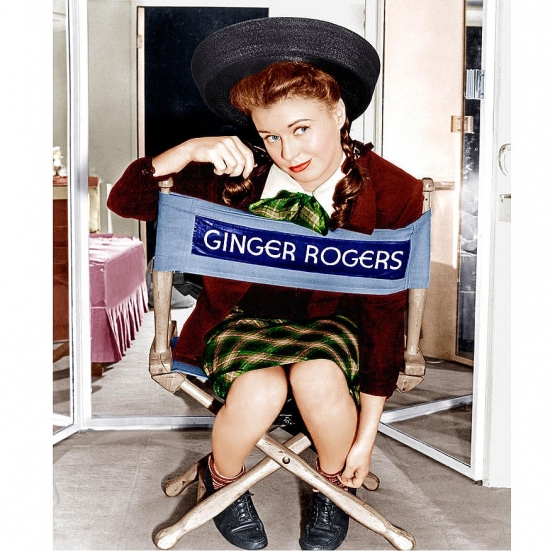|
Hollywood History Film Clips  "The Thrilling, romantic story of how Howard Hughes, the millionaire kid, who tossed fortunes into the making of Hell's Angels
The editors of Photoplay, like many in the Hollywood community between the years 1927 through 1930, were extremely curious about wunderkind Howard Hughes (1905 – 1976) and the wildly expensive film he was directing that never seemed able to reach a state of completion, "Hell's Angels". This article, by Bogart Rogers, makes clear that by the time the film was released, production costs had soared beyond the four million dollar range (although some contemporary sources believe it was a few hundred thousand south of that number)- and most infamously, four aviators had been killed during the filming. This article sums-up the Hollywood career of Howard Hughes up to 1930 and seeks to separate some of the falsehoods that circulated about the boy-director.
When this interview appeared on the newsstands, Jean Harlow (1911 – 1937) had fifteen credits under her belt (most of them short films) and only six years left until she would assume room temperature as a result of kidney failure. Written by the PHOTOPLAY reporter Leonard Hall (who would like us to believe that he was a Hollywood studio psychiatrist), this is a light and breezy two page interview conducted at the New Yorker Hotel at a time when that establishment appealed to Hollywood Royalty.
Click here to read articles about Marilyn Monroe.
A Photoplay Magazine interview featuring British actor Ronald Colman (1891 – 1958) in which the journalist attempted to dispel all preconceived notions that the actor was some sort of "male Garbo" and was, in fact, a regular guy.
When the deep-pocketed film director Howard Hughes (1905 – 1976) decided to tint a few sequences from his film HELL'S ANGELS (1930) he purchased the company that he believed capable of filling such an order: Multicolor in Hollywood, California (as it turned out, the work was actually done by Technicolor). Hughes was such a curiosity to the press and they followed his every whim; in this article, critic Donald Beaton refers to Hughes as a pioneer and salutes him for experimenting with color. An interview with Stan Laurel and Oliver Hardy: "They are the comedy sensations of the season. And all because they have learned, by a lucky stroke, that the public likes to see itself caricatured on the screen; that the public can laugh at the maunderings of a fat man who shakes a warning pudgy forefinger at a sensitive simpleton who is prone to weep" A swell article that truly catches the spirit of the time. You will read about the war-torn Hollywood that existed between the years 1941-1945 and the movie shortage, the hair-pin rationing, the rise of the independent producers and the ascent of Van Johnson and Lauren Becall: "Lauren, a Warner Brothers property, is a blonde-haired chick with a tall, hippy figure, a voice that sounds like a sexy foghorn and a pair of so-what-are-you-going-to-do-about-it eyes" Mention is also made of the hiring of demobilized U.S. combat veterans to serve as technical assistants for war movies in such films as "Objective Burma".
|
MORE ARTICLES >>> PAGE: * 1 * 2 * 3 * 4 * 5 * 6 * 7 * 8 * 9 * 10 * 11 * 12 * 13 * 14 * 15 * 16 * 17 * 18 * > NEXT |
|